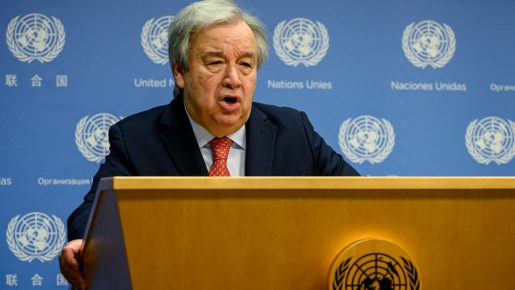UNCTAD, the United Nations Conference on Trade and Development, recently revealed that the sustainable finance market has reached a substantial valuation of $6 trillion. This disclosure came at a crucial moment when global leaders converged in Abu Dhabi, United Arab Emirates, to deliberate on the pressing investment challenges facing developing countries in the midst of the numerous global crises we face today. These leaders collectively recognized the urgent need to allocate $500 billion in annual investments to developing nations as a top priority.
UN Secretary-General António Guterres, addressing an audience of heads of state, prominent business figures, sustainable stock exchanges, sovereign wealth funds, and experts, emphasized the imperative of putting the Sustainable Development Goals (SDGs) Stimulus Package into practice. Guterres called for concerted efforts to mobilize the annual $500 billion investment needed for developing countries. Furthermore, he urged governments to establish a fair pricing mechanism for carbon, and encouraged companies to adopt credible net-zero plans, aligning with recommendations from the High-Level Expert Group on Net-Zero Emissions Commitments of Non-State Entities.
As the global leaders gathered under the banner of “Investing in Sustainable Development,” UNCTAD Secretary-General Rebeca Grynspan revealed the remarkable valuation of $6 trillion for the sustainable finance market. Her statement underscored a critical issue: the current allocation of funds in the sustainable finance sector falls far short in directing resources towards essential sectors such as new renewable energy infrastructure, water and sanitation facilities, agricultural projects, and healthcare in developing countries. Shockingly, only five percent of all sustainable funds are currently earmarked for these nations, highlighting a misallocation of resources.
This meeting held particular significance as it took place in the lead-up to COP28, the 28th Conference of the Parties to the United Nations Framework Convention on Climate Change. The discussions centered around advancing climate finance and investment, serving as a pivotal platform for policymakers to identify solutions and bolster global climate negotiations. A key focal point was addressing the staggering $4 trillion Sustainable Development Goals (SDG) investment gap. Leaders acknowledged that only 15 percent of the SDGs are on track to be achieved by 2030, indicating the urgency of the situation. They disclosed that the investment gap in the developing world has grown from $2.5 trillion per year in 2015 to a substantial $4 trillion today.
Leaders from diverse nations, including Germany’s Vice Chancellor Robert Habeck, stressed the need to bridge the SDG investment gap by mobilizing sustainable finance within the global capital markets. They also called for the establishment of sustainability standards within the sphere of sustainable finance, ensuring that funds are channeled to where they are most urgently required. The importance of international coordination was stressed, given the sheer scale of investment needs, along with the promotion of blended finance models that involve both public and private sectors, including emerging players like sovereign wealth funds.
Conclusion: sustainable finance
On a day of global significance, World Food Day, UNCTAD and the Food and Agriculture Organization of the United Nations (FAO) emphasized the pivotal role of agrifood systems in addressing some of the most pressing global challenges. These challenges encompass tackling malnutrition, poverty alleviation, preservation of biodiversity and ecosystem services, and addressing the ever-pressing issue of climate change. Notably, this discussion took place against the backdrop of global supply chain disruptions caused by the COVID-19 pandemic and the ongoing conflict in Ukraine, underscoring the importance of resilient and sustainable food systems.


